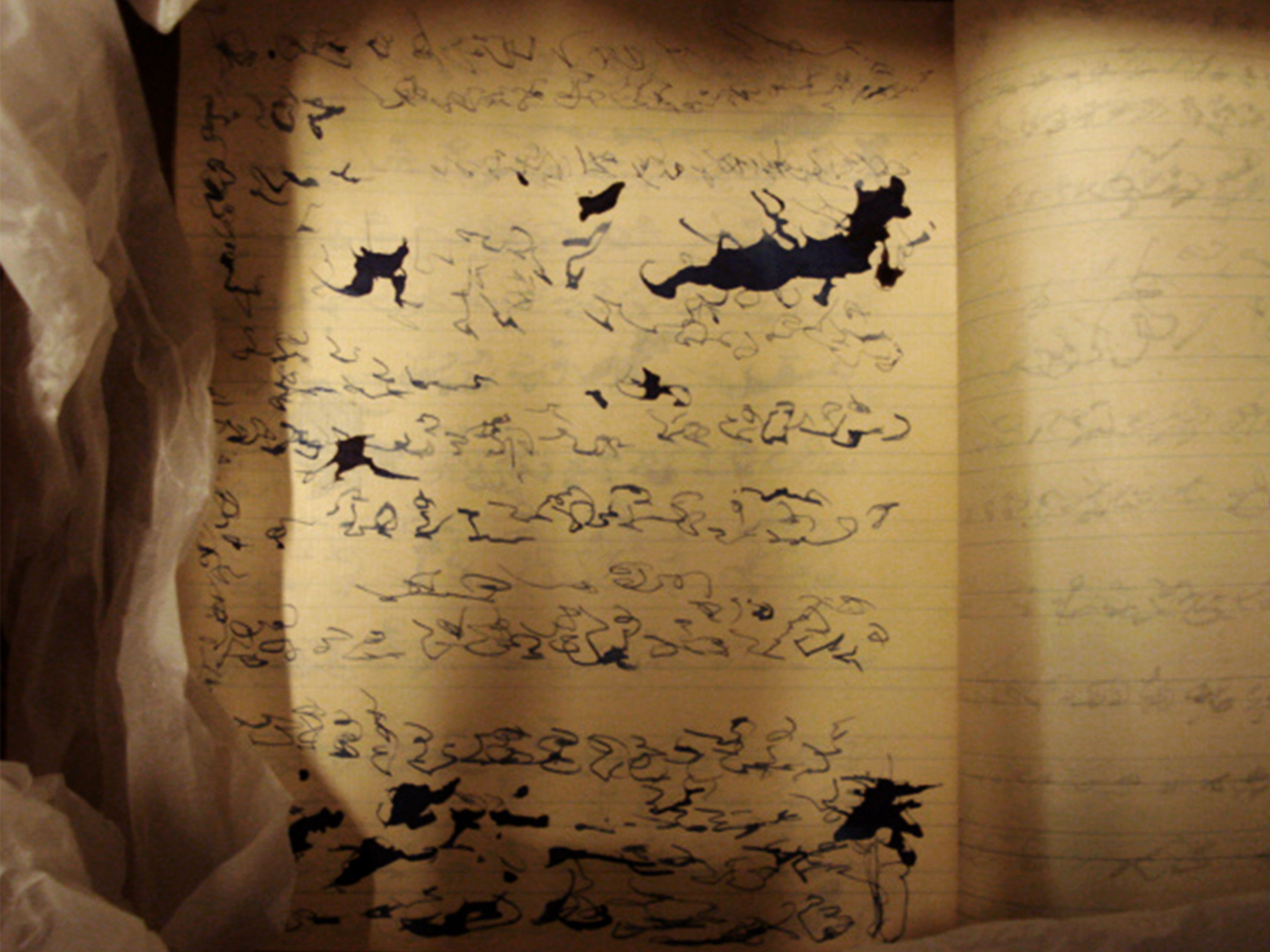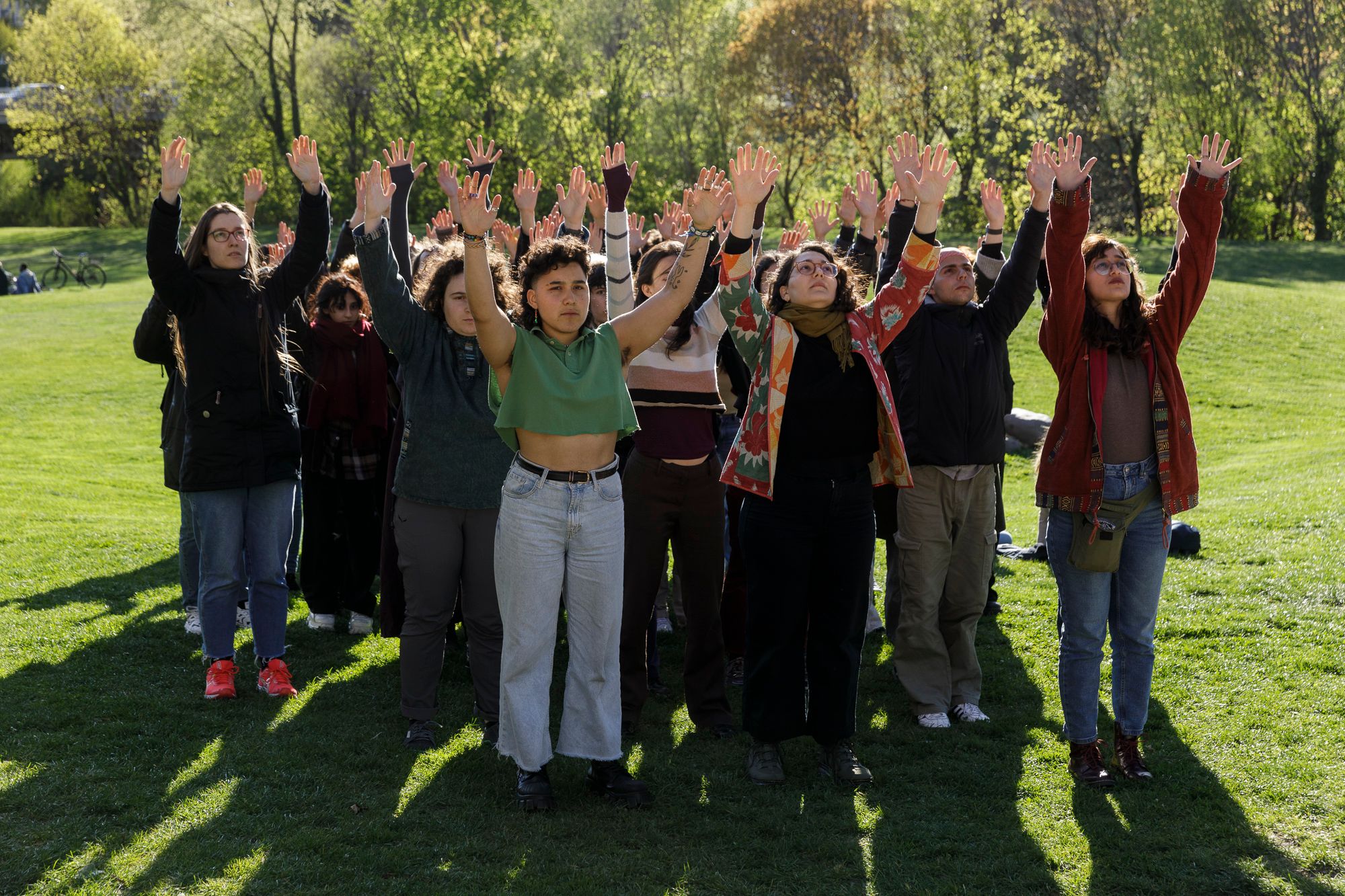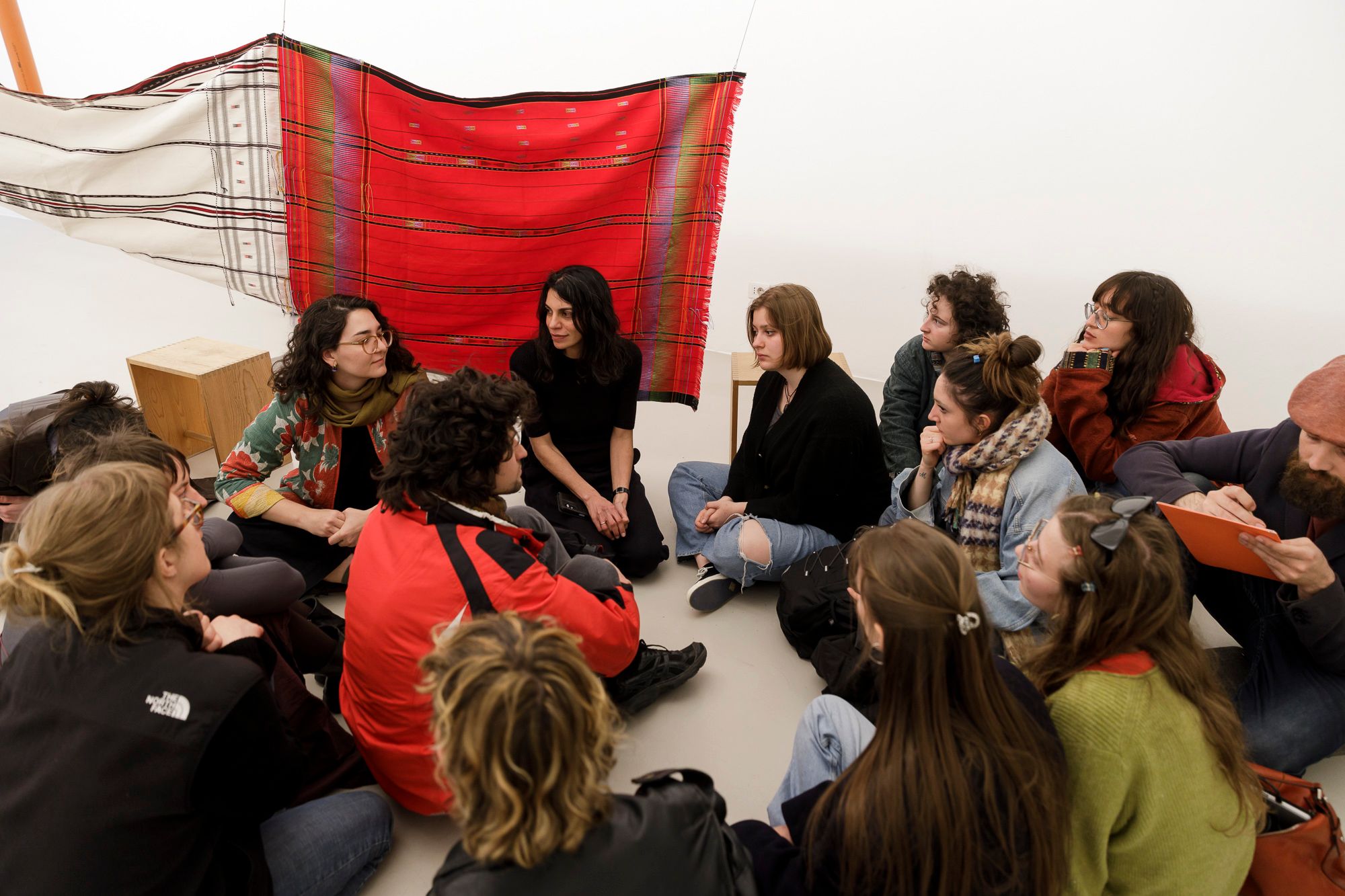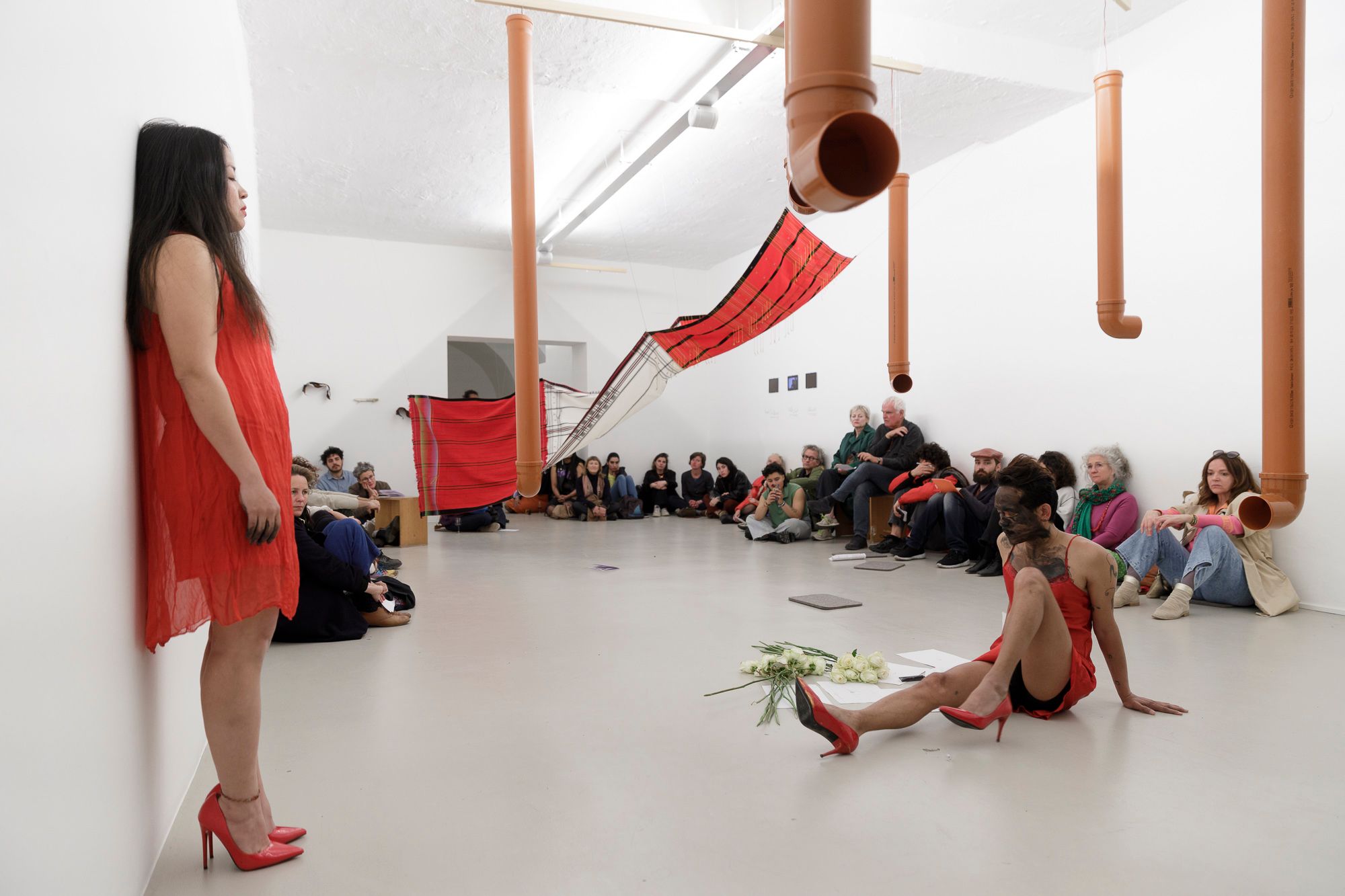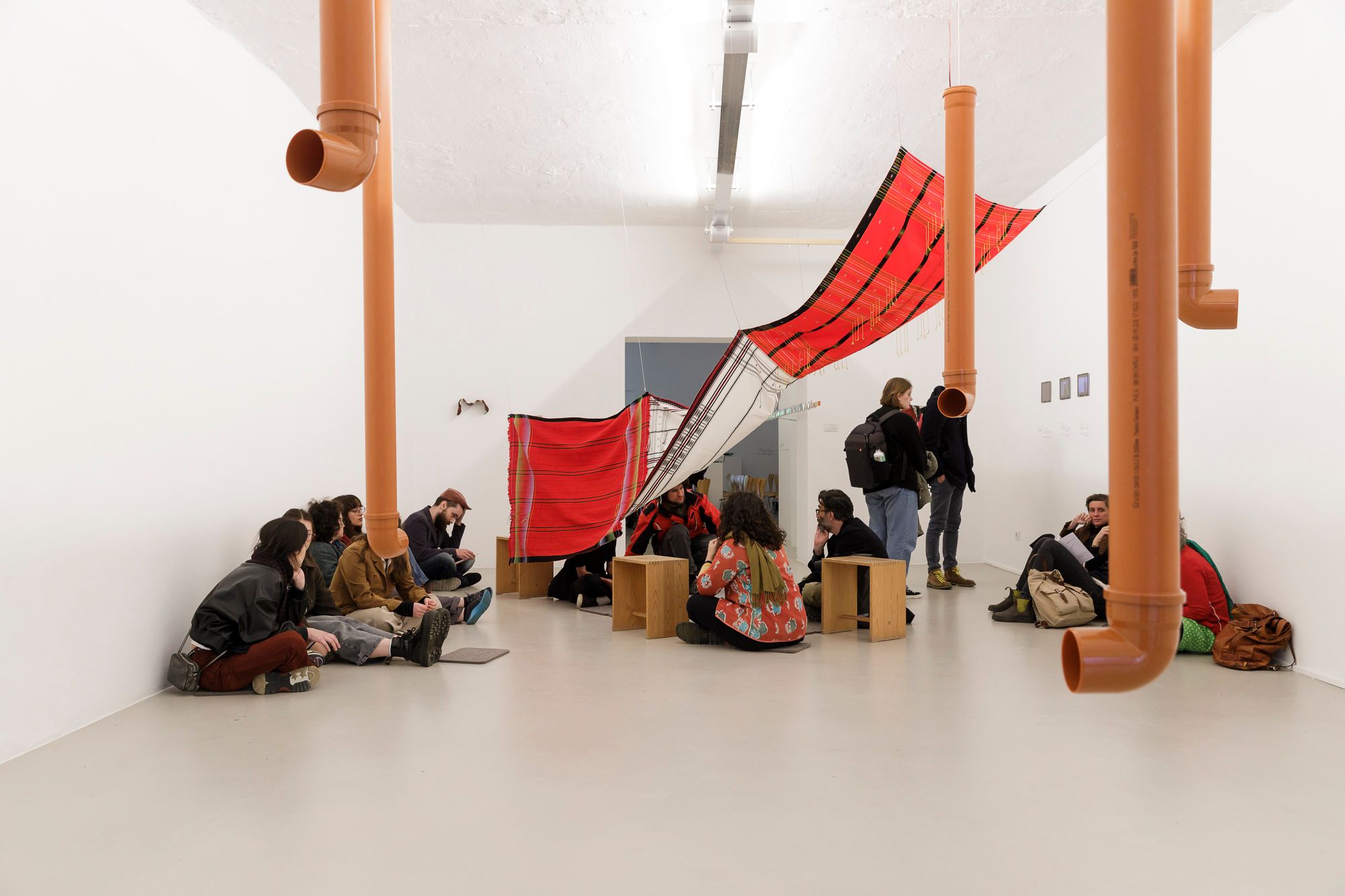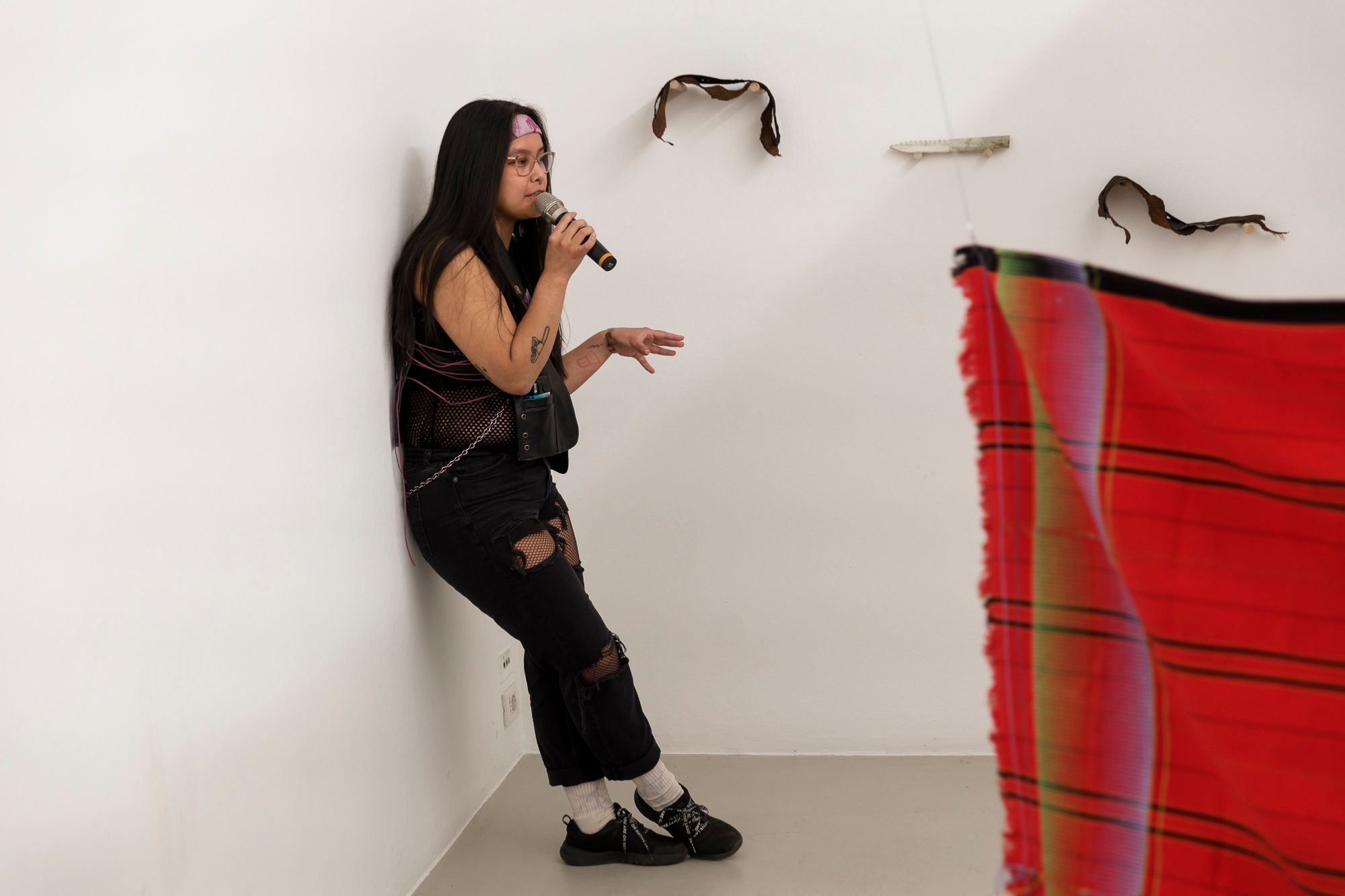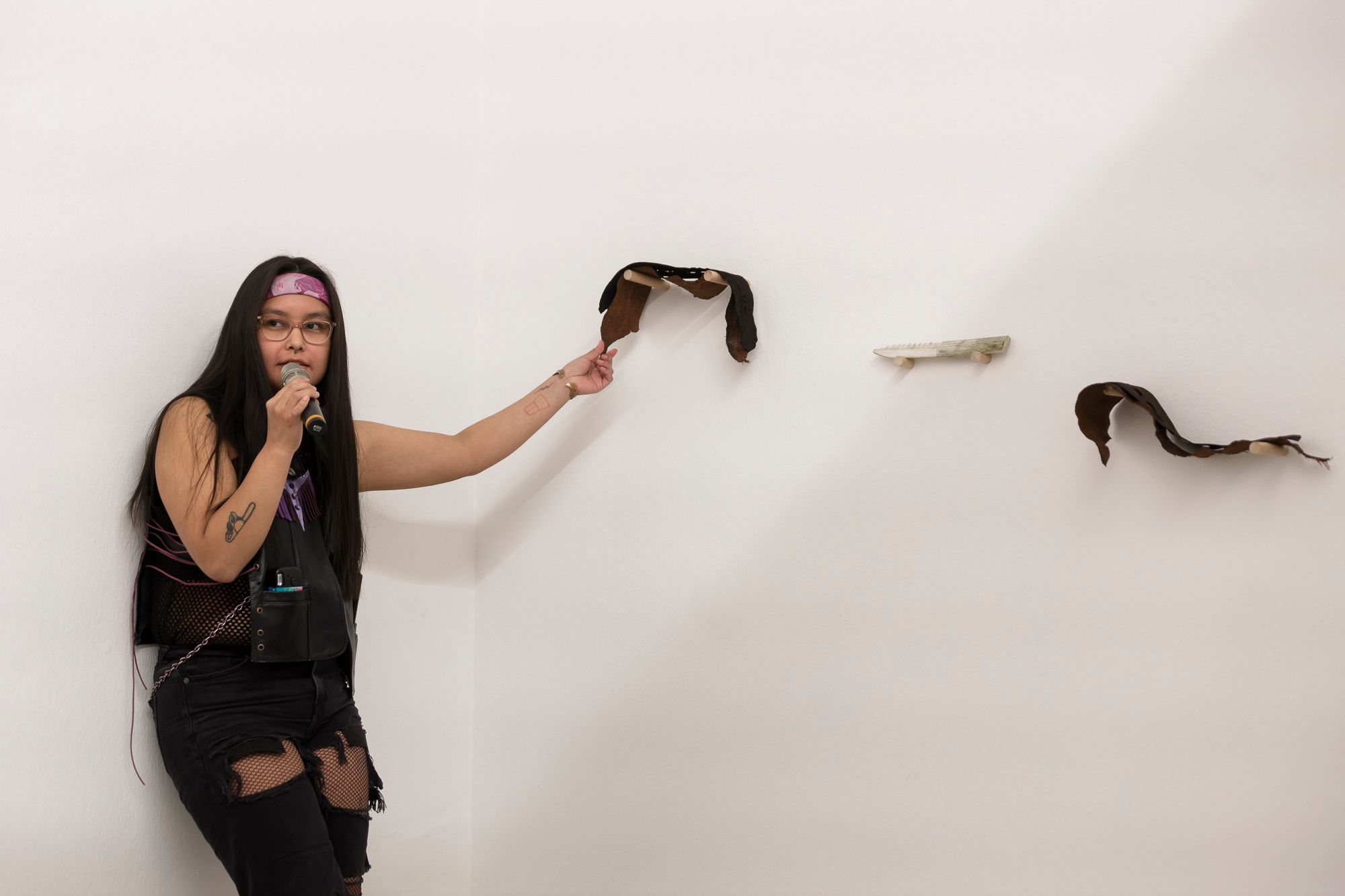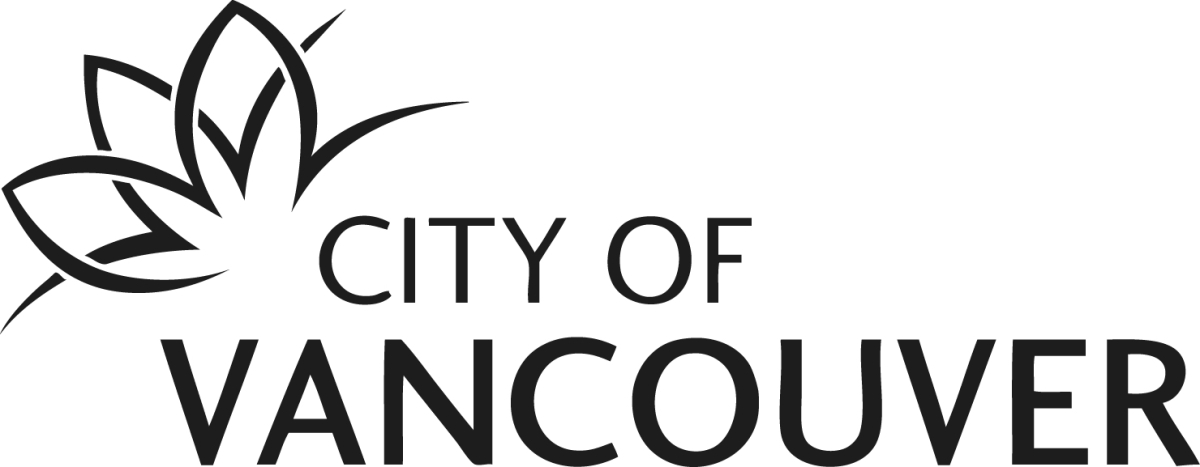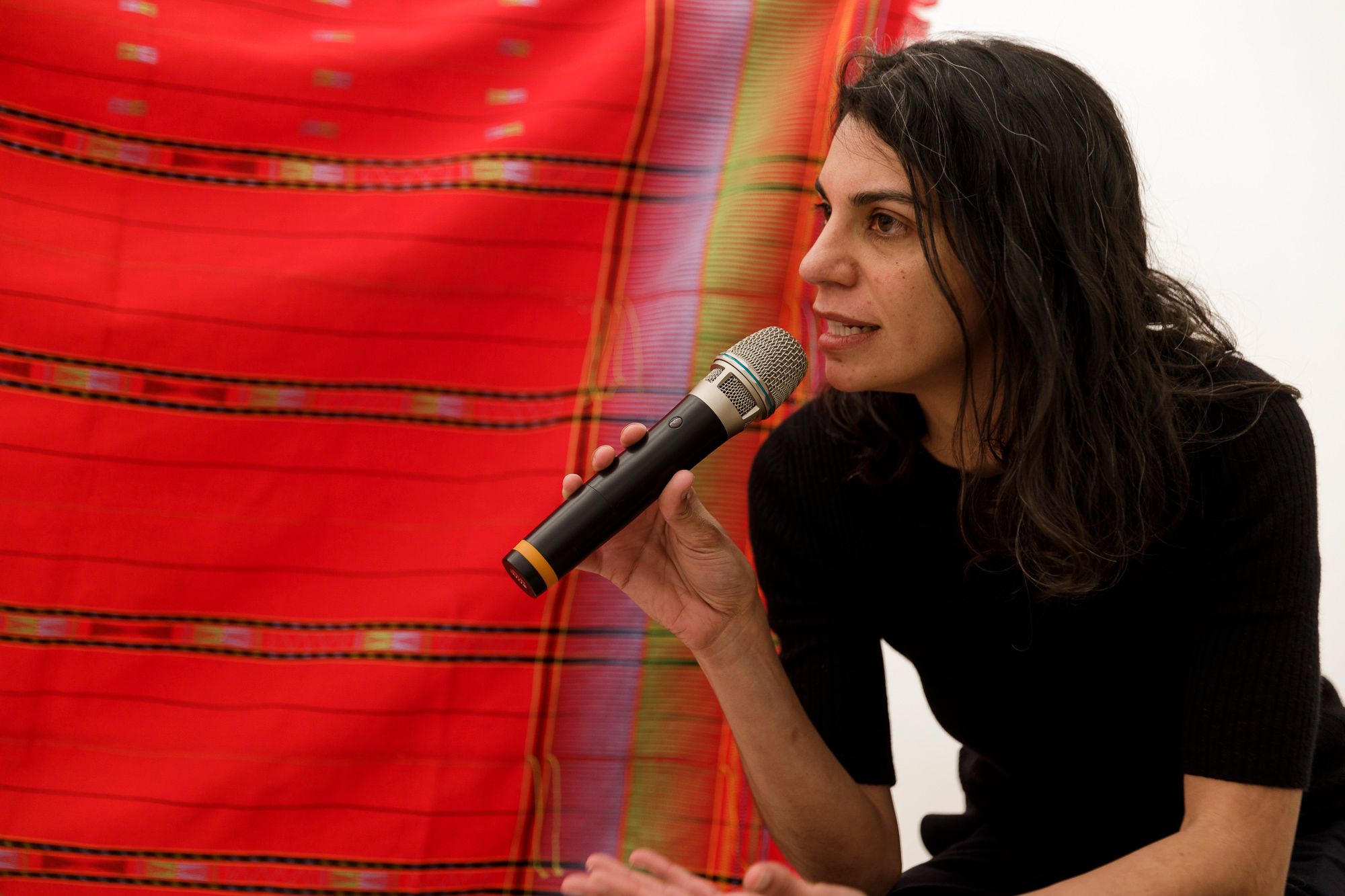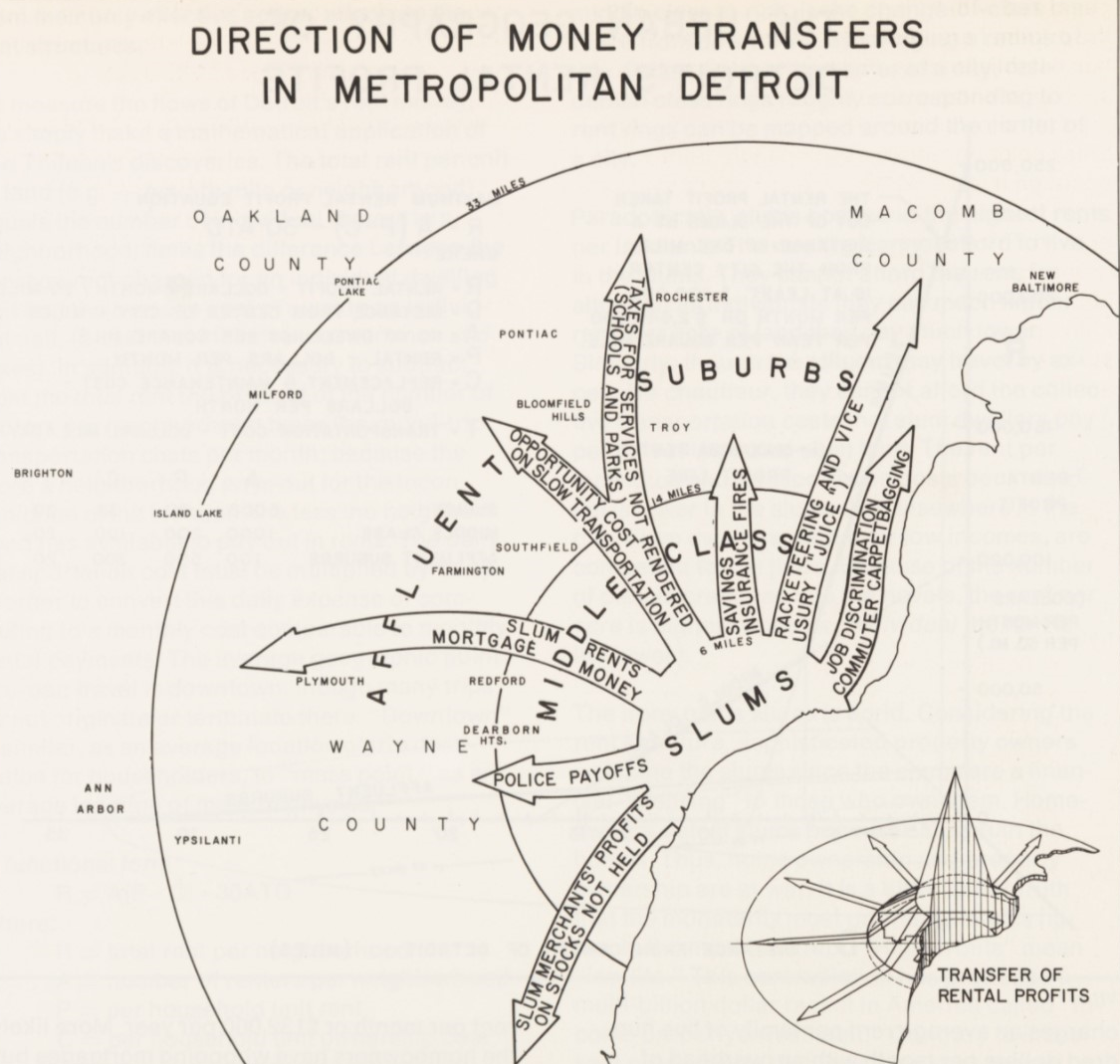The Scorched Earthly considers the use of the scorched-earth policy—and the many forms this military manoeuvre has taken up until the present—in terrains largely describable as either unceded or ungovernable. The highlands of North-Eastern India and Myanmar (known as Zomia) and lands of the First Nations (especially the unceded territories of British Columbia in Canada) bear ‘oralitures’ that describe routine scorched-earth intentions, and are fused with recent protest sites.
The Scorched Earthly accentuates poetic voices and artistic actions from terrains connected by their bearing and desisting of scorched-earth manoeuvres. Gathering new commissions, sound recordings, and objects associated with the oral tradition, Zasha Colah’s fellowship with 221A culminates in an exhibition and “sit-in” at Ar/Ge Kunst in Bolzano, Italy, which opened in April 2023, as well as a research archive now housed at 221A’s Fellowship Library in Vancouver, Canada.
The Scorched Earthly archive connects narrations of buffalo slaughter on Treaty 7 lands in Southern Alberta, Canada; songs of burnt forest land and Gaidinliu’s coming of the heraka; the Black Priestess’s reanimating a sacred forest in Zomia; the protest action In Defence of the Native Forest in Córdoba-Argentina (Argentina, 2017) with the human barriers during the Chipko movement (India, 1970s); the occupation of a national highway through Shaheen Bagh, and the farmers’ protests in India; the Fairy Creek Blockade on unceded Pacheedaht territory (2020-21) in so-called British Columbia; and the htamein barricades from Yangon Artists’ Street in 2021.
The project includes the work of:
Chaw Ei Thein (artist, Yangon, 1969); Soloman Chiniquay (artist and filmmaker, xʷməθkʷəy̓əm, Sḵwx̱wú7mesh, səl̓ilwətaɁɬ territory and Treaty 7 territory); Valeen Jules (artist, poet and birthworker, Nuu-chah-nulth and Kwakwaka’wakw Nations); Desmond Kharmawphlang (poet, Shillong, 1964); Ko Latt (artist, Yangon, 1987); Arkotong Longkumer (anthropologist, Kohima, Nagaland);
Saviya Lopes (artist, Vasai, 1994); Poly Marchantia (artist, Milano, 2020); Nge Lay (artist, Pyin Oo Lwin, Mandalay region, Myanmar, 1979); Zamthingla Ruivah (artist and songwriter, Ukhrul, Manipur, 1966); Yadanar Win (artist, Yangon, 1987); Sawangwongse Yawnghwe (artist, Shan State Burma, 1971).
Further Feature Image Details: An account of Rani Gaidinliu’s notebooks by Dr. Arkotong Longkumer, Senior Lecturer, Modern Asia, The University of Edinburgh
